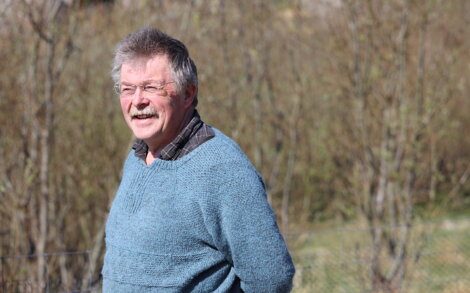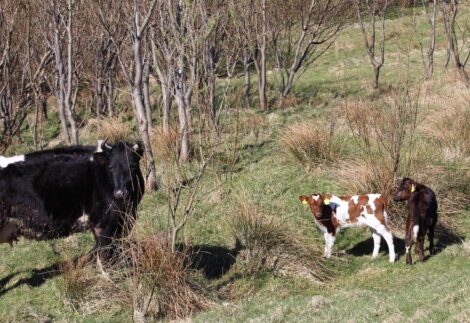Agriculture / Better data needed to establish how farming could help reduce Shetland’s large carbon footprint
A PROMINENT local farmer has called for urgent research to be carried out into the state of Shetland’s peatlands to establish the role farming and crofting could play in mitigating the release of greenhouse gases.
Ronnie Eunson said agriculture is generally blamed for being a main contributor to the climate crisis but that does not necessarily need to be the case for Shetland.
He said that as far as he knew there is “insufficient data to establish contentious positions” like saying that farming is the problem.
“It may well be the case that certain types of farming are more detrimental than others, but as far as Shetland is concerned there is an opportunity to address carbon emissions through sequestration on the hills,” Eunson said.
His comments come as a newly formed Shetland Peatland Partnership aims to promote the restoration of degraded peatland and hopes to have a strategy in place by the end of this year.
Chair of the Shetland Peatland Partnership, Moraig Lyall, said the group had a vision of protecting existing high quality peatland and restoring degraded peat bogs back to health.
According to consultants Ricardo Energy and Environment (REE) it is estimated that Shetland emits about 670,000 tonnes of CO2e (carbon dioxide equivalent) per year, and half of this is associated with land use, mainly due to damaged peat bogs.
Eunson, who runs a 1,200 acre organic farm with his son at Uradale, Scalloway, said more detailed research was urgently needed to establish which areas of peatland in Shetland were the main culprits in emitting greenhouse gases such as carbon dioxide and methane.
The 65-year-old farmer said there was an opportunity for Shetland to address greenhouse gas emissions through “sequestration on the hills”.
“I would like to see immediate analysis of the peatlands of Shetland to put some numbers and facts to the situation,” he said.
Become a supporter of Shetland News
“If areas are currently sequestering carbon they should be commended, and management should continue.
“If there are areas of overgrazing or too heavy physical mass on sensitive peatlands then the management there needs to be looked at to come up with a better balance between grazing pressure and carbon sequestration.
“Policies directed at dealing with climate issues must in essence be sustainable. Taking a crude, simplistic approach does not address the problems and only alienates communities.”
Eunson advocated farming methods that are closer to nature by using native breeds that are far better adapted to be farmed on an island at 60 degrees north.
He said the farm at Uradale was almost running self-sufficiently with only extra straw and barley needing to be bought in as fodder, making it an operation with an extremely low carbon footprint.
“To my knowledge, there is absolutely no data to prove that greenhouse gas emissions from Shetland sheep are the same as from breeds down in England,” he added.
“Shetland agriculture is uniquely naturally advantaged by having a highly evolved native sheep. The answer lies in using these wisely to maintain communities, assist in carbon sequestration and justify our heritage.
“All this may mean a reduction in sheep numbers, but in the interest of biodiversity I don’t believe it means removal of sheep, because studies in the past have shown that the simple removal of sheep does not enhance the diversity of plant and animal species.
“There is, like with most things in life, a balance to be found.”
Become a supporter of Shetland News
Shetland News is asking its many readers to consider start paying for their dose of the latest local news delivered straight to their PC, tablet or mobile phone.
Journalism comes at a price and because that price is not being paid in today’s rapidly changing media world, most publishers - national and local - struggle financially despite very healthy audience figures.
Most online publishers have started charging for access to their websites, others have chosen a different route. Shetland News currently has over 600 supporters who are all making small voluntary financial contributions. All funds go towards covering our cost and improving the service further.
Your contribution will ensure Shetland News can: -
- Bring you the headlines as they happen;
- Stay editorially independent;
- Give a voice to the community;
- Grow site traffic further;
- Research and publish more in-depth news, including more Shetland Lives features.
If you appreciate what we do and feel strongly about impartial local journalism, then please become a supporter of Shetland News by either making a single payment or monthly subscription.
Support us from as little as £3 per month – it only takes a minute to sign up. Thank you.






























































